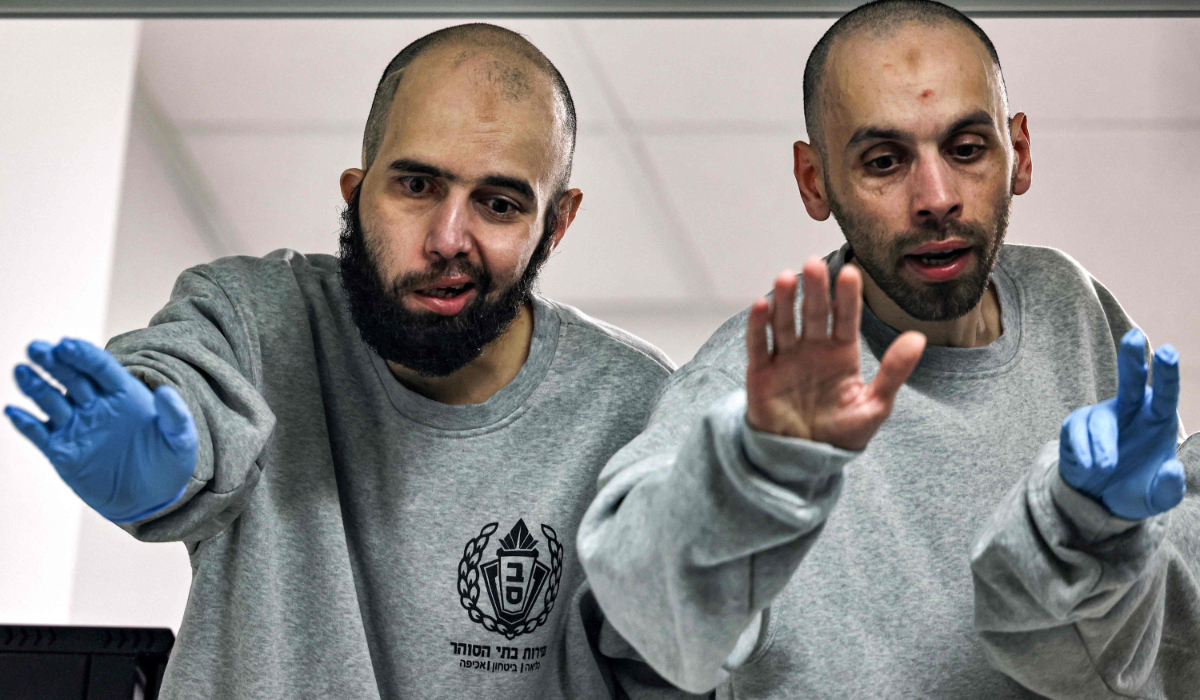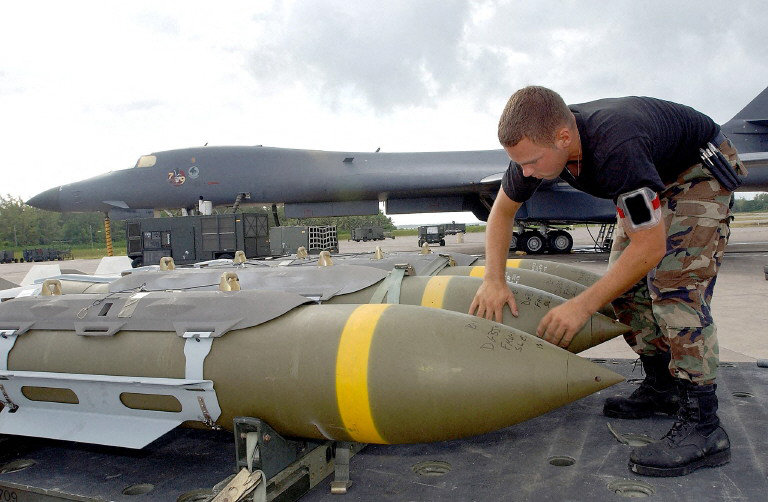GAZA STRIP, Palestinian Territories: Dozens of Palestinians in the Gaza Strip have been killed in the latest Israeli strikes, the Hamas-run territory’s health ministry said Saturday, after Israel’s spy chief joined talks in Paris seeking to unblock negotiations on a truce.
The talks come after a plan for a post-war Gaza unveiled by Israeli Prime Minister Benjamin Netanyahu drew criticism from key ally the United States, and was rejected by Hamas and the Palestinian Authority in the Israeli-occupied West Bank.
The talks also come alongside deepening fears for Gaza’s civilians desperate for food. The United Nations’ main aid body for Palestinians, UNRWA, said Gazans were “in extreme peril while the world watches.”
Hamas said on Saturday that Israeli forces had launched more than 70 strikes on civilian homes in Gazan cities including Deir Al-Balah, Khan Yunis and Rafah over the previous 24 hours. The health ministry said at least 92 people were killed.
Israel’s military said it was “intensifying the operations” in western Khan Yunis using tanks, close-range fire and aircraft.
“The soldiers raided the residence of a senior military intelligence operative” in the area and destroyed a tunnel shaft, a military statement said.
Hamas, the Palestinian Islamist movement that has ruled Gaza since 2007, said fighting was raging in the northern Gaza district of Zeitun.
In nearby Jabalia refugee camp, tempers are rising and on Friday dozens of people held an impromptu protest.
“We didn’t die from air strikes but we are dying from hunger,” said a sign held by one child.
In the camp, bedraggled children waited expectantly, holding plastic containers and battered cooking pots for what little food is available. Residents have taken to eating scavenged scraps of rotten corn, animal fodder unfit for human consumption and even leaves.
Gaza’s health ministry said a two-month-old baby identified as Mahmud Fatuh had died of “malnutrition.”
“The risk of famine is projected to increase as long as the government of Israel continues to impede the entry of aid into Gaza,” as well as access to water, health and other services, the charity Save the Children said.
Israel has defended its efforts to deliver aid into Gaza, saying that 13,000 trucks carrying aid have entered Gaza since the start of the war.
The UN humanitarian agency OCHA said in a report on Friday that in Rafah, near the Egyptian border, people are reportedly stopping aid trucks to take food, a measure of their desperation.
The war began after Hamas’s unprecedented October 7 attack, which resulted in the deaths of about 1,160 people in Israel, mostly civilians, according to an AFP tally of official figures.
Hamas militants also took hostages, 130 of whom remain in Gaza, including 30 presumed dead, according to Israel.
Israel’s retaliatory offensive has killed at least 29,606 people, mostly women and children, according to the latest tally released on Saturday by Gaza’s health ministry.
With war still raging after more than four months, Netanyahu on Thursday unveiled a plan for post-war Gaza that sees civil affairs being run by Palestinian officials without links to Hamas.
The plan says that, even after the conflict, Israel’s army would have “indefinite freedom” to operate throughout Gaza to prevent any resurgence of terror activity, according to the proposals.
It also says Israel will move ahead with a plan, already underway, to establish a security buffer zone inside Gaza along the territory’s border.
A senior Hamas official, Osama Hamdan, said Netanyahu “is presenting ideas which he knows fully well will never succeed.”
The plan also drew criticism from the United States.
“The Palestinian people should have a voice and a vote... through a revitalized Palestinian Authority,” which currently has partial administrative control in the West Bank, National Security Council spokesman John Kirby said.
He added that the United States did not “believe in a reduction of the size of Gaza.”
An Israeli delegation led by Mossad intelligence agency chief David Barnea traveled to Paris for a fresh push toward a deal to return the remaining hostages.
The United States, Egypt and Qatar have all been deeply involved in past negotiations aimed at securing a truce and prisoner-hostage exchanges.
Pressure has mounted on Netanyahu’s government to negotiate a ceasefire and secure the release of the hostages. A group representing their families planned what it billed as a “huge rally” to demand swifter action, coinciding with the Paris talks on Saturday night.
“We keep telling you: bring them back to us! And no matter how,” Avivit Yablonka, 45, whose sister Hanan Yablonka was captured on October 7, said at a traditional Shabbat dinner for hostage families in Tel Aviv.
White House envoy Brett McGurk held talks this week with Israeli Defense Minister Yoav Gallant in Tel Aviv, after speaking to other mediators in Cairo who had met Hamas chief Ismail Haniyeh.
A Hamas source said the new plan proposes a six-week pause in the conflict and the release of between 200 and 300 Palestinian prisoners in exchange for 35 to 40 hostages being held by Hamas.
Barnea and his US counterpart from the CIA helped broker a week-long truce in November that saw the release of 80 Israeli hostages in exchange for 240 Palestinian prisoners held in Israeli jails.
The war has led to repeated attacks on shipping in the Red Sea and Gulf of Aden by Iran-backed Houthis in Yemen who say they are acting in solidarity with Palestinians in Gaza.
Rubymar, a British-registered cargo ship abandoned in the Gulf of Aden after one such attack, is taking on water and has left a huge oil slick.
Strikes kill dozens in Gaza as Israel, Hamas seek ceasefire deal
https://arab.news/4n8ce
Strikes kill dozens in Gaza as Israel, Hamas seek ceasefire deal

- The talks also come alongside deepening fears for Gaza’s civilians desperate for food
- “We didn’t die from air strikes but we are dying from hunger,” said a sign held by one child






























